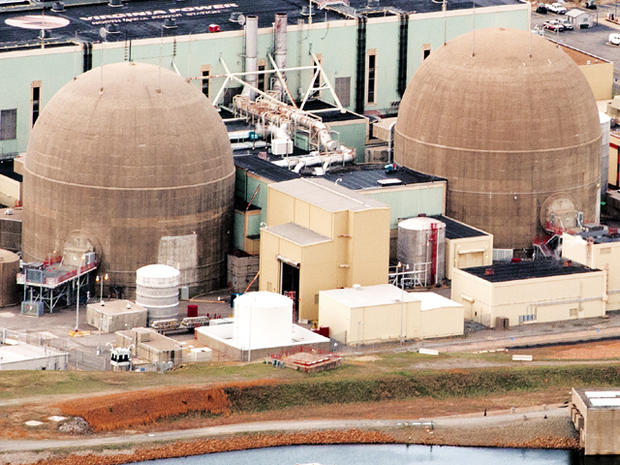Rep. Ed Markey calls for stronger nuclear safety after earthquake
Democratic Rep. Ed Markey of Massachusetts is calling for stronger nuclear safety standards in the wake of the 5.8-magnitude earthquake that rocked the East Coast and prompted two nuclear reactors near the Virginia epicenter to automatically switch to emergency power sources.
Markey, the top Democrat in the House Natural Resources Committee and a senior member of the Energy and Commerce Committee, sent a letter today to Nuclear Regulatory Commission Chairman Greg Jaczko, calling for the NRC to create new requirements for the maintenance of emergency diesel and battery generators to prevent a nuclear accident. Markey said the East Coast quake adds emphasis to a lesson the U.S. nuclear industry should have learned from Japan's nuclear crisis earlier this year.
"The Fukushima meltdown was a long-distance warning to the U.S. nuclear industry to bolster its safety systems, including backup power reliability and redundancy," Markey wrote. "The Virginia earthquake is now our local 911 call to stop delaying the implementation of stricter safety standards."
Two nuclear reactors at the North Anna Power Station in Louisa County, Va. -- just about 10 miles from the quake's epicenter -- were automatically taken off line around the time of the earthquake, officials said yesterday. The North Anna plant ran off three emergency diesel generators, while a fourth diesel generator failed.
Backup diesel generators provide the power to cool reactors in the event of an electricity outage at a nuclear plant. Japan's nuclear crisis unfolded after the March earthquake caused a power outage at the Fukushima nuclear plant and the subsequent tsunami caused the diesel backup systems to fail.
While there was no emergency at Lake Anna, Markey wrote that the failure of the fourth generator there "illustrates a long-standing concern related to the adequacy of maintenance of emergency diesel generators that must be addressed in order to be certain that any loss of external electricity -- be it caused by an earthquake, tornado, flood or terrorist attack -- does not lead to the same sort of catastrophic meltdowns that occurred in Japan."
The Lake Anna incident was the 74th report of an inoperable backup diesel generator over the last eight years, according to Markey's office.
After the disaster in Japan, Markey called for a moratorium on all new reactors in seismically active areas until there is a comprehensive review of their design, proposed emergency response and backup power methods.

